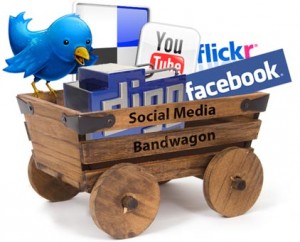 Small businesses and other start-ups share a lot in common: most are full of hopes and expectations. Most small business owners have a product that they really believe in. Most are staffed largely by magnanimous family members. And most…are short on cash. Does this sound familiar? So you’ve started a business, and now you’re looking at how you can start to market and grow your business past where you’ve been able to take it on your own. You’ve likely wondered how you can maximize every last cent in the company coffers to do the most good, but with so many costs, including rent, employee compensation, possible insurance premiums, and other overhead, it may seem like spending what little cash you have on marketing. But spreading the word is crucial to your company’s growth and marketing for small business doesn’t have to cost big bucks.
Small businesses and other start-ups share a lot in common: most are full of hopes and expectations. Most small business owners have a product that they really believe in. Most are staffed largely by magnanimous family members. And most…are short on cash. Does this sound familiar? So you’ve started a business, and now you’re looking at how you can start to market and grow your business past where you’ve been able to take it on your own. You’ve likely wondered how you can maximize every last cent in the company coffers to do the most good, but with so many costs, including rent, employee compensation, possible insurance premiums, and other overhead, it may seem like spending what little cash you have on marketing. But spreading the word is crucial to your company’s growth and marketing for small business doesn’t have to cost big bucks.
Diffusing your message through the marketplace isn’t as expensive as it used to be, largely as a result of the advent of internet-based marketing. Content generators can craft messages that they post online, usually at no cost. These messages can then be viewed, re-viewed, re-tweeted, or “liked,” all at little or no cost to you. Building momentum in this way is important, because even if you have the best product or service around, no one can buy it if they don’t know about it.
But using social media to build your business isn’t just a function of how many bits of content you generate. It’s also about targeting your message to hit the right audience. Sometimes this means posting content in places you know it’s likely to be viewed, but sometimes it also means that you step aside and let someone else do the talking for you. And by the way, it’s best if that person has a sizeable audience. That’s where a little bit of research comes in handy.
You likely already know your industry quite well, but do you know the names of the trendsetters in your industry? Who are the thought leaders? If you don’t, you should find out. A good way to do this is jumping onto your Twitter account. Look for the conversations that are relevant to your industry, and then look for the people whose names seem to come up again and again. If you’re looking for extra confirmation, use a free service like Klout to find out who has the biggest audience. At that point, you can make a concerted effort to win that person over to your product! Send your target a free sample of your product, and make sure that you do your very best to ensure that he or she has a good experience. Winning over a trendsetter can move mountains for your business because you can leverage the work that he or she has already done to win an audience, and turn it to your favor. Isn’t that worth the cost of sending out a free sample?
Another way to use the internet to market your company is simply through your mobile website or to build a mobile app. More and more people will visit your website from a mobile device and if the experience works well for the user then you can build your business from that. But when should you build a mobile app vs. using your website? So should you build a mobile app? Apps have a few benefits–things like push notification, occupying real estate on your phone screen, and integration with your phone in ways that websites can’t (like your camera). But if your app doesn’t offer entertainment or some sort of tool you may want to re-think an app and go with a better mobile experience and spend the money marketing your site.
While using the more traditional strategies of placing ads in newspapers and purchasing space on billboards still has its place, you might consider the merits of social media and other online tools. With so little to lose (in terms of advertising costs) and so much to gain, it’s definitely worth your time to investigate.